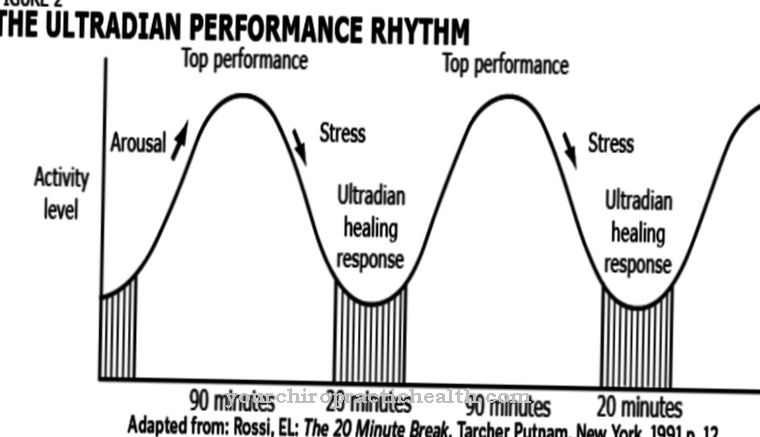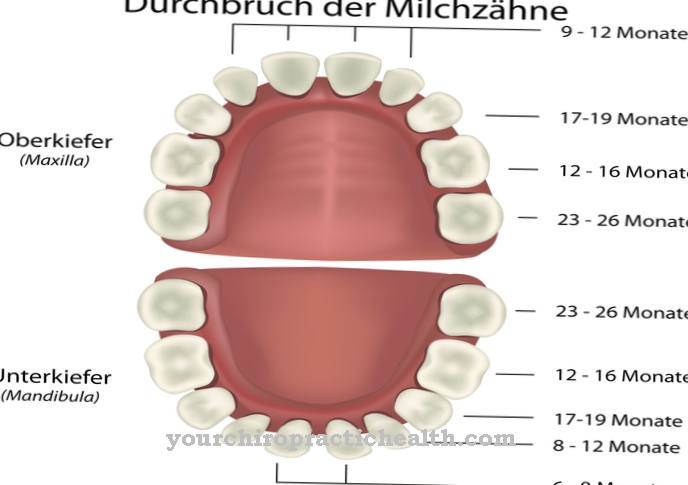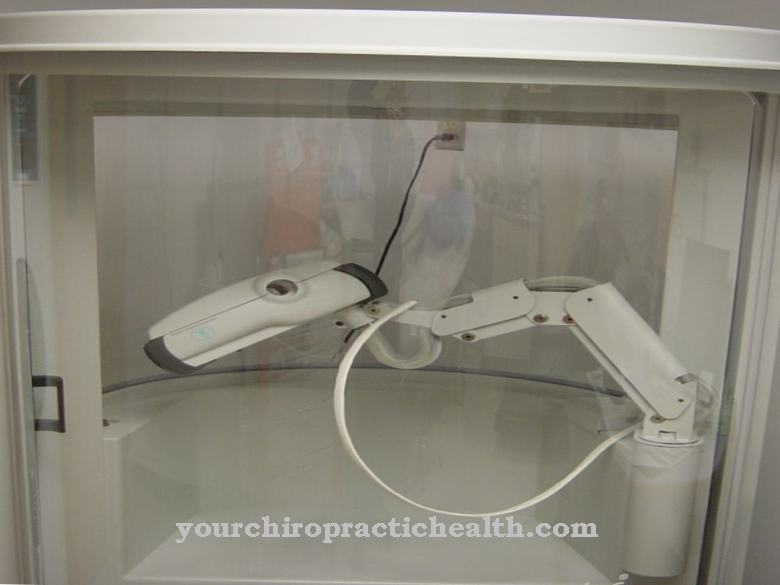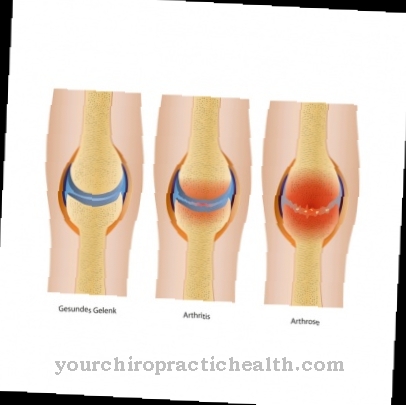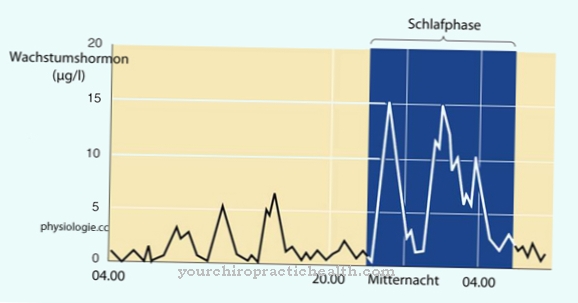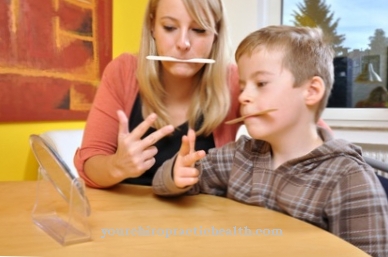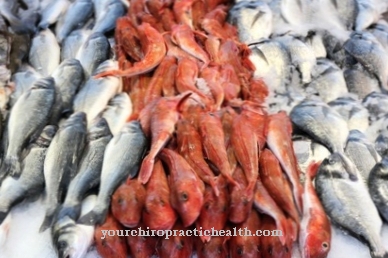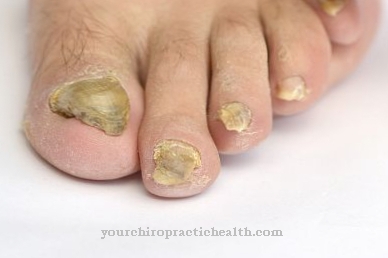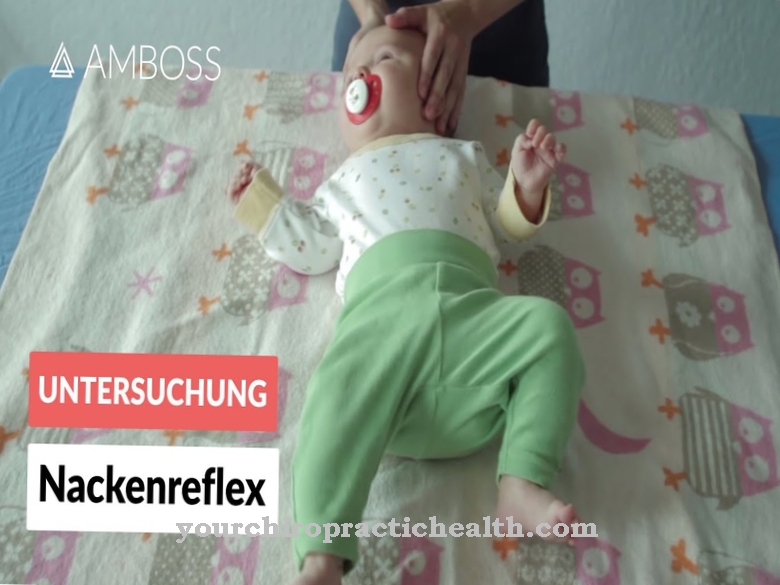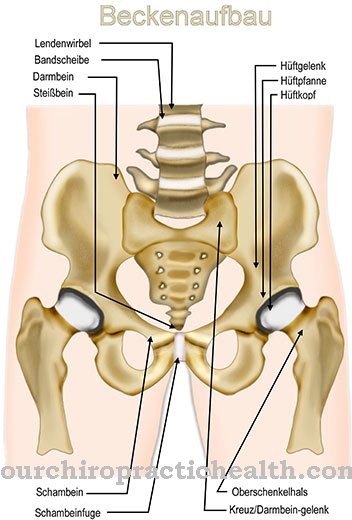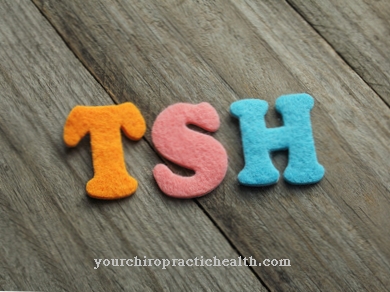The oral phase is a stage of development in the child's first year of life, when it explores its environment with the mouth. During the oral phase, the baby tries to put all kinds of objects in his mouth.
What is the oral phase?

The German psychologist Sigmund Freud dealt, among other things, with the development of babies and small children through puberty to adulthood. The knowledge about the phases of body and environmental exploration goes back to him, which a baby goes through mainly in the first year of life, but also beyond.
One of these phases is the oral phase. It marks the entry into the various phases. From around the third month of life a baby can make its first grasping movements, but it is more likely to see a shadowy outline than clear contours.
The sense of touch in the mouth is much more reliable than its sense of sight. While an adult is looking at an object to grasp it, the baby puts it in their mouth and uses taste, resistance to chewing, shape, temperature and such factors to determine what is in their hand - or in their mouth.
The learning processes of the oral phase are grasping and hand-mouth coordination, a first simple motor skills exercise. Chewing is also trained.
However, the oral phase is without question also dangerous, because babies do not differentiate between harmless and potentially dangerous objects.
Function & task
Just like all other phases that follow the oral phase, it must not be suppressed. The baby learns a lot during this time, even if it is certainly not pleasant for adults not to leave an object unattended or to get one back wet.
First of all, the baby gets to know the environment in its own way. The sense of sight cannot be compared with that of an adult. Babies see shadows and blurred outlines, they can just make out faces in their vicinity, and at a distance they see blurred. The sense of touch of the mouth, on the other hand, is well developed and represents the sense of sight until it is more fully developed.
The baby also learns about tastes, temperatures and structures. This prepares it for the first food after breast milk. The oral phase also trains gripping and other fine-tuning of motor skills. At the beginning of the oral phase, a baby grasps using the thumb and palm. When the oral phase is almost over in the ninth month (at least the high phase), the baby can use all fingers to grasp. It also practices hand-mouth coordination by repeatedly bringing the hand to the mouth.
The baby develops a first, limited body feeling. The tongue, jaw and lips build up the muscles and strength that they will soon need to chew the first solid food - and also to speak. Since the oral phase lasts differently for each child and some babies can crawl on their own when they are still in the middle of their oral phase, this naturally also harbors risks. Because a baby does not differentiate between the completely safe teething ring and the toxic cleaning agent that may be within reach.
You can find your medication here
➔ Medicines to calm down and strengthen nervesIllnesses & ailments
Unfortunately, the first time the baby is poisoned during the oral phase. When the first babies begin to explore the world by mouth in their third month of life, they can only grasp what is near or what is offered to them. But as soon as the little ones become mobile, can even roll and turn, they can get at things that you thought would be a safe distance away. As soon as a baby crawls, it should therefore be supervised to be on the safe side.
How long the oral phase will last cannot be generalized with certainty, but even if much less is put into the mouth in small children, caution is advised with objects other than baby toys. Even for a four or five year old, it would not be abnormal to put something in their mouth in a moment of thought.
Further difficulties can arise if a baby is consciously forbidden to put objects in their mouth - then the difficulties are more of a psychological nature. Early childhood experiences and their influence on the psyche are still the subject of research today, but it is clear that there is definitely a connection between the suppression of natural development and a person's mental health.
Of course, that doesn't mean that all the desired items have to be put in their mouth just because the baby would like them to. It is better to offer the baby age-appropriate chew toys with different surfaces, sizes and shapes to distract them from these things. As soon as the child understands words, it can then be explained to him why he is not allowed to get stuck at the dining table.
In addition, care must be taken that biting toys are kept clean - clean and not sterile. Germs are important for the development and maturation of the immune system, but biting toys shouldn't be completely sticky. Illness is unlikely to occur if the baby licks something dirty, but this should still be prevented if possible.




